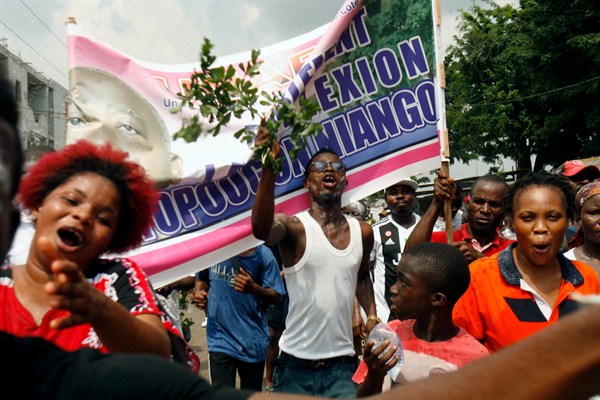In late 2011, as the International Criminal Court prepared to mark 10 years since it began operations, its record was looking decidedly unimpressive.
For one thing, it still had not secured any convictions; the first, for the Congolese warlord Thomas Lubanga, wouldn’t be delivered until March 2012. Perhaps more importantly, the court’s most high-profile suspects sat comfortably outside its reach. Despite their indictments, Sudanese President Omar al-Bashir and Uhuru Kenyatta, then Kenya’s finance minister, both held onto their offices. And Kenyatta was gearing up for what would turn out to be a successful presidential bid in 2013, a campaign in which he cast the ICC as a symbol of neocolonialism to score political points.
The court’s work in Cote d’Ivoire, however, was a rare bright spot—an opportunity to demonstrate that it had real power. In November 2011, seven months after his arrest in Abidjan effectively ended Cote d’Ivoire’s post-election conflict, ousted President Laurent Gbagbo was handed over to the ICC and flown to The Hague. He thus became the first former head of state to be taken into the court’s custody, a development that Human Rights Watch hailed at the time as “a major step toward ensuring justice” for the people of Cote d’Ivoire.

